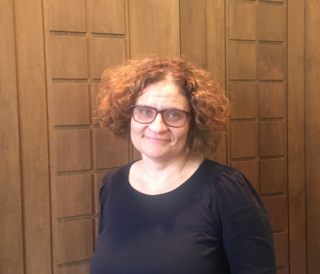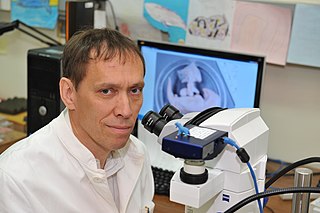Related Research Articles

Whaling is the hunting of whales for their usable products such as meat and blubber,which can be turned into a type of oil that was important in the Industrial Revolution. Whaling was practiced as an organized industry as early as 875 AD. By the 16th century,it had become the principal industry in the Basque coastal regions of Spain and France. The whaling industry spread throughout the world and became very profitable in terms of trade and resources. Some regions of the world's oceans,along the animals' migration routes,had a particularly dense whale population and became targets for large concentrations of whaling ships,and the industry continued to grow well into the 20th century. The depletion of some whale species to near extinction led to the banning of whaling in many countries by 1969 and to an international cessation of whaling as an industry in the late 1980s.
The Thule or proto-Inuit were the ancestors of all modern Inuit. They developed in coastal Alaska by the year 1000 and expanded eastward across northern Canada,reaching Greenland by the 13th century. In the process,they replaced people of the earlier Dorset culture that had previously inhabited the region. The appellation "Thule" originates from the location of Thule in northwest Greenland,facing Canada,where the archaeological remains of the people were first found at Comer's Midden.

Right whales are three species of large baleen whales of the genus Eubalaena:the North Atlantic right whale,the North Pacific right whale and the Southern right whale. They are classified in the family Balaenidae with the bowhead whale. Right whales have rotund bodies with arching rostrums,V-shaped blowholes and dark gray or black skin. The most distinguishing feature of a right whale is the rough patches of skin on its head,which appear white due to parasitism by whale lice. Right whales are typically 13–17 m (43–56 ft) long and weigh up to 100 short tons or more.

Aboriginal whaling or indigenous whaling is the hunting of whales by indigenous peoples recognised by either IWC or the hunting is considered as part of indigenous activity by the country. It is permitted under international regulation,but in some countries remains a contentious issue. It is usually considered part of the subsistence economy. In some places,whaling has been superseded by whale watching instead. This article deals with communities that continue to hunt;details about communities that have ended the practice may be found in History of whaling.

Commercial whaling in the United States dates to the 17th century in New England. The industry peaked in 1846–1852,and New Bedford,Massachusetts,sent out its last whaler,the John R. Mantra,in 1927. The Whaling industry was engaged with the production of three different raw materials:whale oil,spermaceti oil,and whalebone. Whale oil was the result of "trying-out" whale blubber by heating in water. It was a primary lubricant for machinery,whose expansion through the Industrial Revolution depended upon before the development of petroleum-based lubricants in the second half of the 19th century. Once the prized blubber and spermaceti had been extracted from the whale,the remaining majority of the carcass was discarded.

The bowhead whale is a species of baleen whale belonging to the family Balaenidae and is the only living representative of the genus Balaena. It is the only baleen whale endemic to the Arctic and subarctic waters,and is named after its characteristic massive triangular skull,which it uses to break through Arctic ice. Other common names of the species included the Greenland right whale,Arctic whale,steeple-top,and polar whale.
Adrian E. Raftery is an Irish and American statistician and sociologist. He is the Boeing International Professor of Statistics and Sociology,and founding Director of the Center for Statistics and Social Sciences at the University of Washington in Seattle,Washington,United States.

Whale conservation refers to the conservation of whales.
Michael Abbott Newton is a Canadian statistician. He is a Professor in the Department of Statistics and the Department of Biostatistics and Medical Informatics at the University of Wisconsin–Madison,and he received the COPSS Presidents' Award in 2004. He has written many research papers about the statistical analysis of cancer biology,including linkage analysis and signal identification.

Bin Yu is a Chinese-American statistician. She is currently Chancellor's Professor in the Departments of Statistics and of Electrical Engineering &Computer Sciences at the University of California,Berkeley.
Aurore Delaigle is a Professor and ARC Future Fellow in the Department of Mathematics and Statistics at the University of Melbourne,Australia. Her research interests include nonparametric statistics,deconvolution and functional data analysis.

Beatrice Aitchison was an American mathematician,statistician,and transportation economist who directed the Transport Economics Division of the United States Department of Commerce,and later became the top woman in the United States Postal Service and the first policy-level appointee there.
Constance van Eeden was a Dutch mathematical statistician who made "exceptional contributions to the development of statistical sciences in Canada". She was interested in nonparametric statistics including maximum likelihood estimation and robust statistics,and did foundational work on parameter spaces.
Jennifer Ann Hoeting is an American statistician known for her work with Adrian Raftery,David Madigan,and others on Bayesian model averaging. She is a professor of statistics at Colorado State University,and executive editor of the open-access journal Advances in Statistical Climatology,Meteorology and Oceanography,published by Copernicus Publications. With Geof H. Givens,a colleague at Colorado State,she is the author of Computational Statistics,a graduate textbook on computational methods in statistics.

Elizaveta (Liza) Levina is a Russian and American mathematical statistician. She is the Vijay Nair Collegiate Professor of Statistics at the University of Michigan,and is known for her work in high-dimensional statistics,including covariance estimation,graphical models,statistical network analysis,and nonparametric statistics.
Dorothy Morrow Gilford was an American statistician who headed the Division of Mathematical Sciences at the Office of Naval Research,the National Center for Education Statistics,and the Conference Board of the Mathematical Sciences. She was the editor of The Aging Population in the Twenty-First Century:Statistics for Health Policy.
Huixia Judy Wang is a statistician who works as a professor of statistics at George Washington University. Topics in her research include quantile regression and the application of biostatistics to cancer.

Johannes Gerardus Marie (Hans) Thewissen is a Dutch-American paleontologist known for his significant contributions to the field of whale evolution. Thewissen's fieldwork has led to the discovery of key fossils that have shed light on the transition of whales from land to water,including the discovery of Ambulocetus,Pakicetus,Indohyus,and Kutchicetus. In addition to his work on fossil discoveries,Thewissen also studies modern bowhead and beluga whales in Alaska,focusing on their biology and the implications of this knowledge for management and conservation efforts. His research has been instrumental in deepening our understanding of cetacean evolution and the adaptations that allowed these mammals to transition from terrestrial to fully aquatic lifestyles.
Margaret Gurney was an American mathematician,statistician,and computer programmer. Originally trained in the mathematical study of partial differential equations at Swarthmore College,Brown University,and the University of Göttingen,she came to work for the United States Census Bureau. There,she became known for her expertise in sampling,stratified sampling,and survey methodology. At the Census Bureau she also worked as an early programmer of the UNIVAC I computer. Later,she became an international consultant,teaching statistical methods in developing countries. She won the Department of Commerce Silver Medal and was recognized as a Fellow of the American Statistical Association.
Kelly S. McConville is an American statistician and statistics educator whose research interests include survey methodology,the applications of environmental statistics to forestry,and the effects of voter identification laws. She is a senior lecturer in statistics at Harvard University.
References
- 1 2 3 4 Curriculum vitae (PDF), retrieved 2017-11-29
- ↑ Judy Zeh, University of Washington Department of Statistics, retrieved 2017-11-29
- 1 2 "Bowhead Whale on the Rebound", The New York Times , June 25, 1991, retrieved 2017-11-29
- 1 2 Coleman, Matt (July 3, 2000), "International debate over world whale management", The World Today, Australian Broadcasting Corporation , retrieved 2017-11-29
- 1 2 3 "Zeh Elected to Leadership Role in Whale Research", A&S Perspectives, University of Washington, Autumn 1999, archived from the original on November 21, 2011, retrieved 2017-11-29
- 1 2 McGrayne, Sharon Bertsch (2011), The Theory that Would Not Die: How Bayes' Rule Cracked the Enigma Code, Hunted Down Russian Submarines, & Emerged Triumphant from Two Centuries of Controversy, Yale University Press, pp. 230–231, ISBN 9780300175097
- ↑ Raftery, Adrian, Research on Whale Population Estimation and Population Dynamics , retrieved 2017-11-29
- ↑ Agresti, Alan; Meng, Xiao-Li, eds. (2012), Strength in Numbers: The Rising of Academic Statistics Departments in the U. S., Springer, p. 524, ISBN 9781461436492,
Judy Zeh, following in Doug Chapman's footsteps, served as chairman of the Scientific Committee of the International Whaling Commission during 2000–2002
. - ↑ ASA Fellows list, American Statistical Association, archived from the original on 2019-11-21, retrieved 2017-11-29